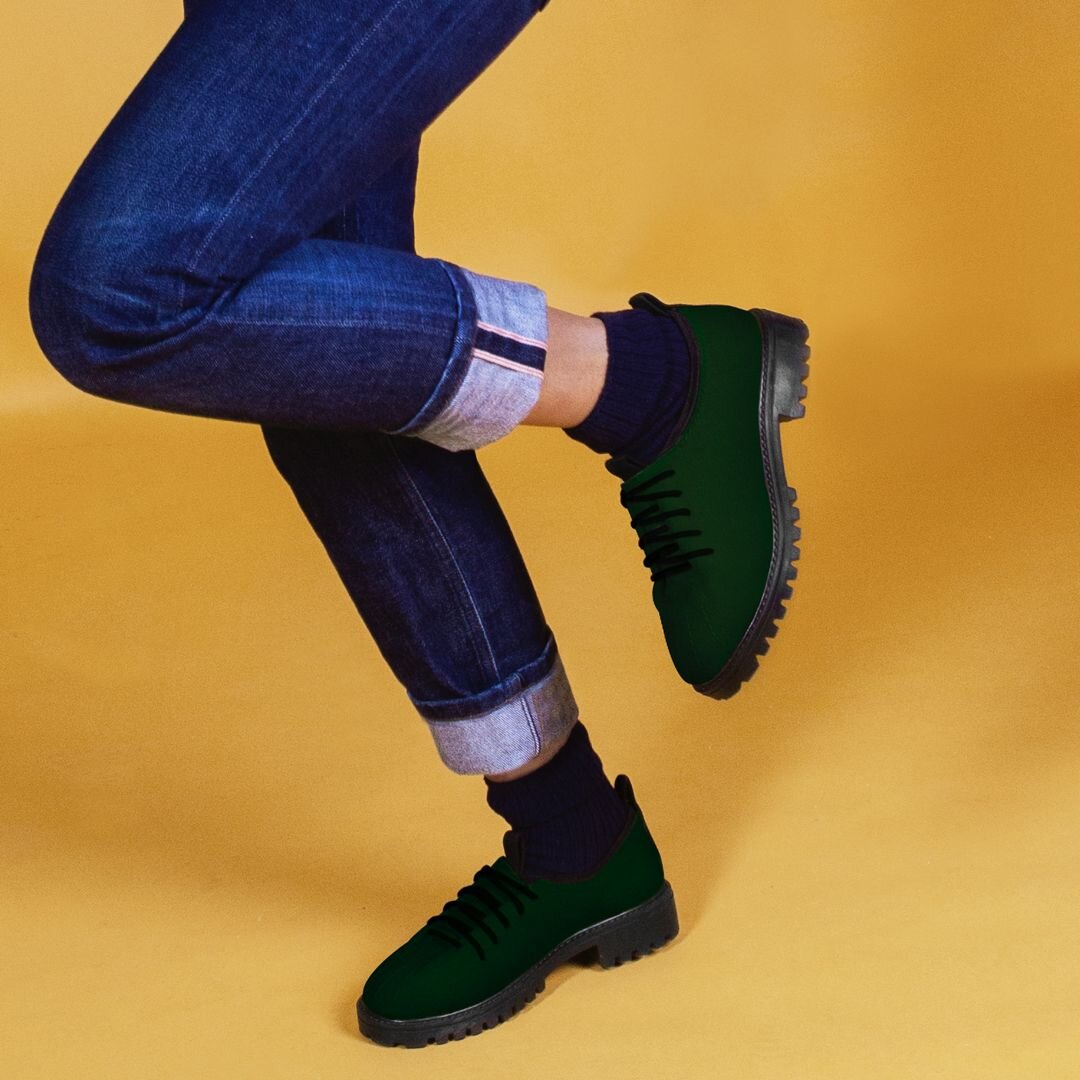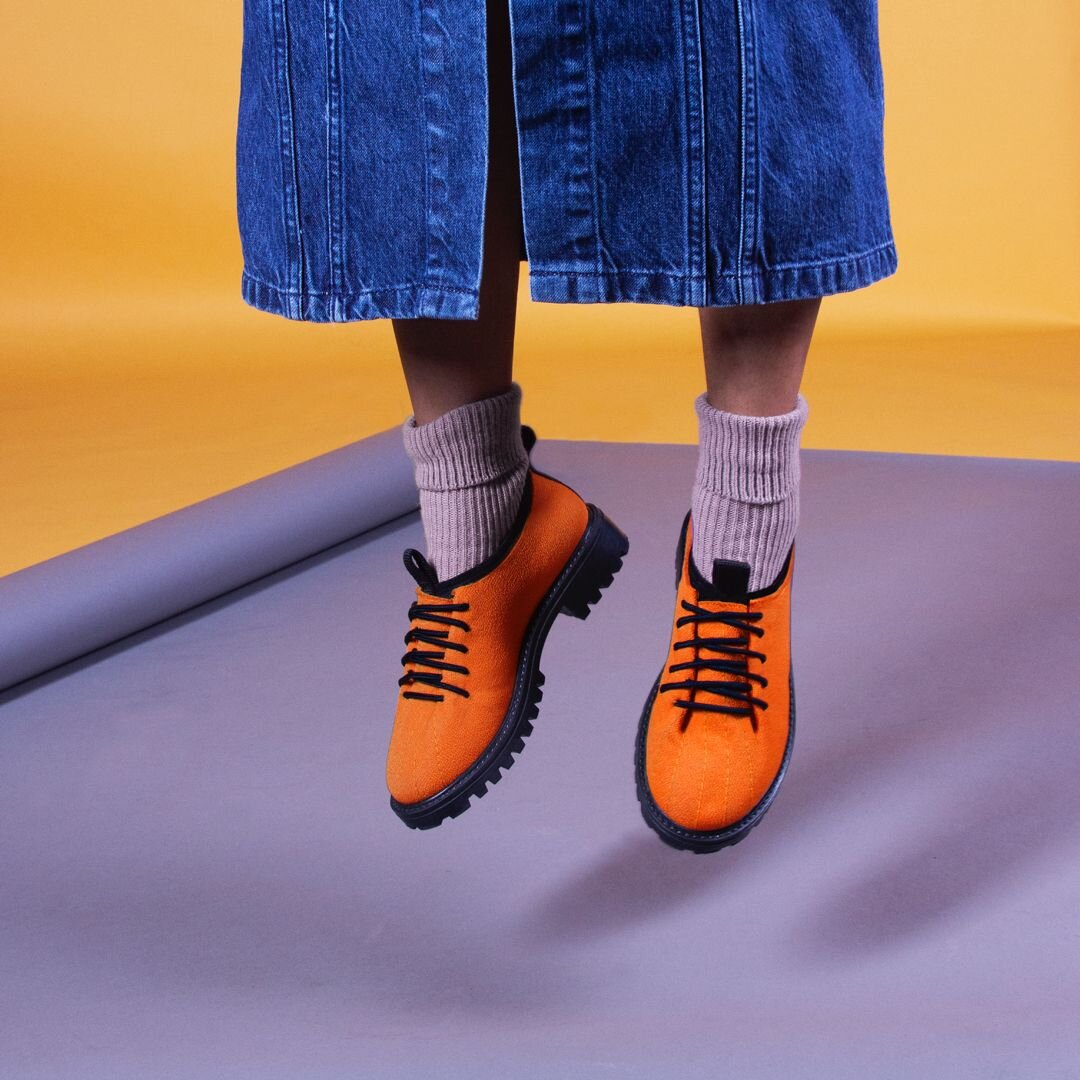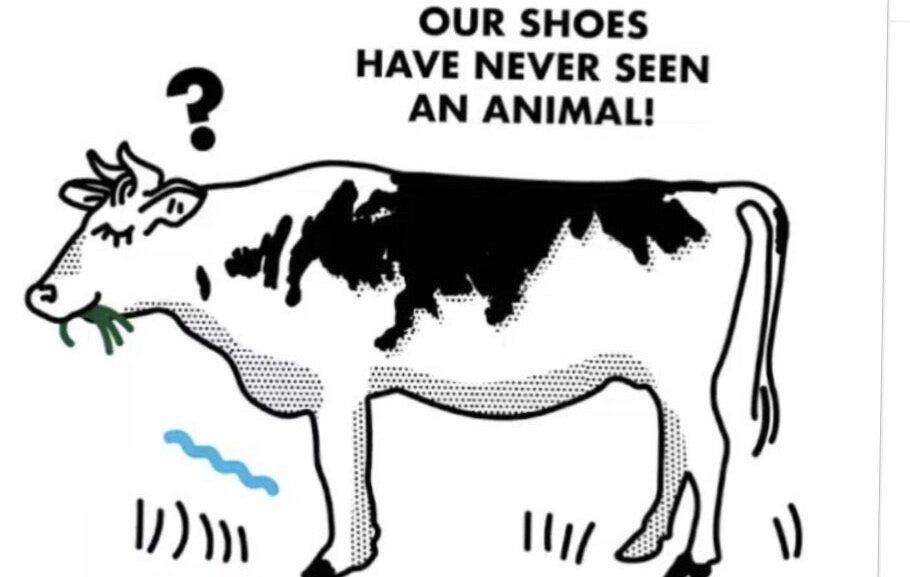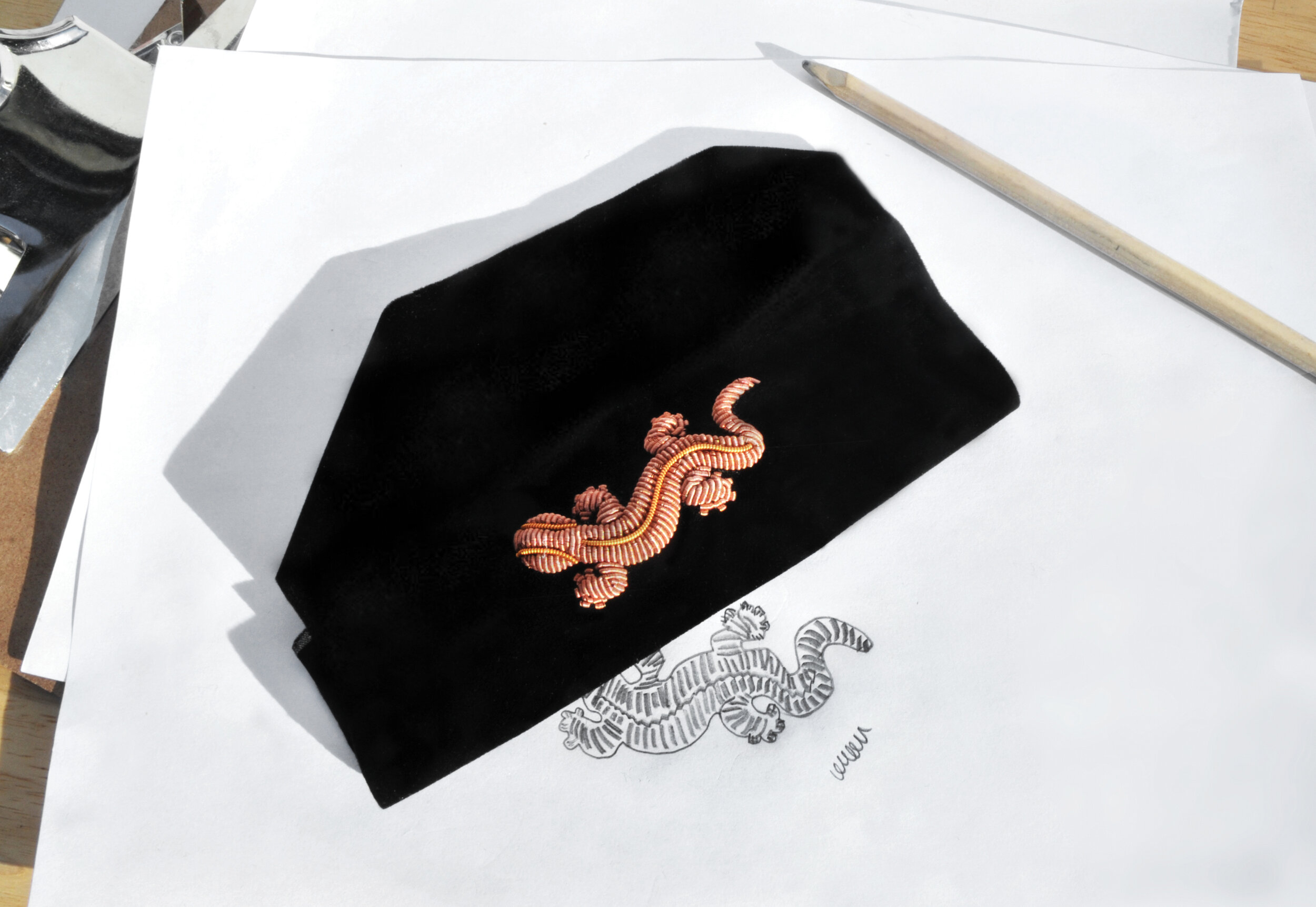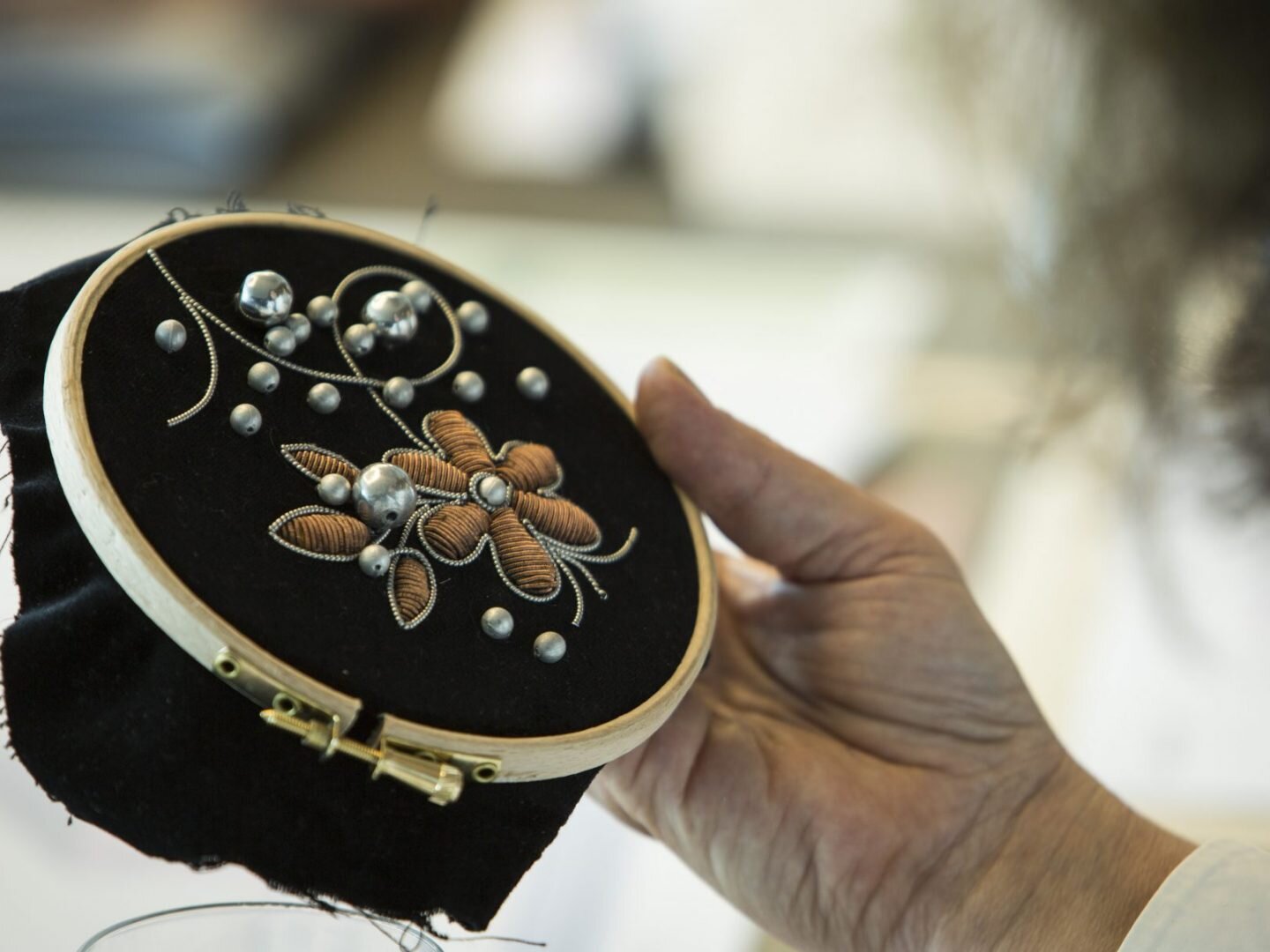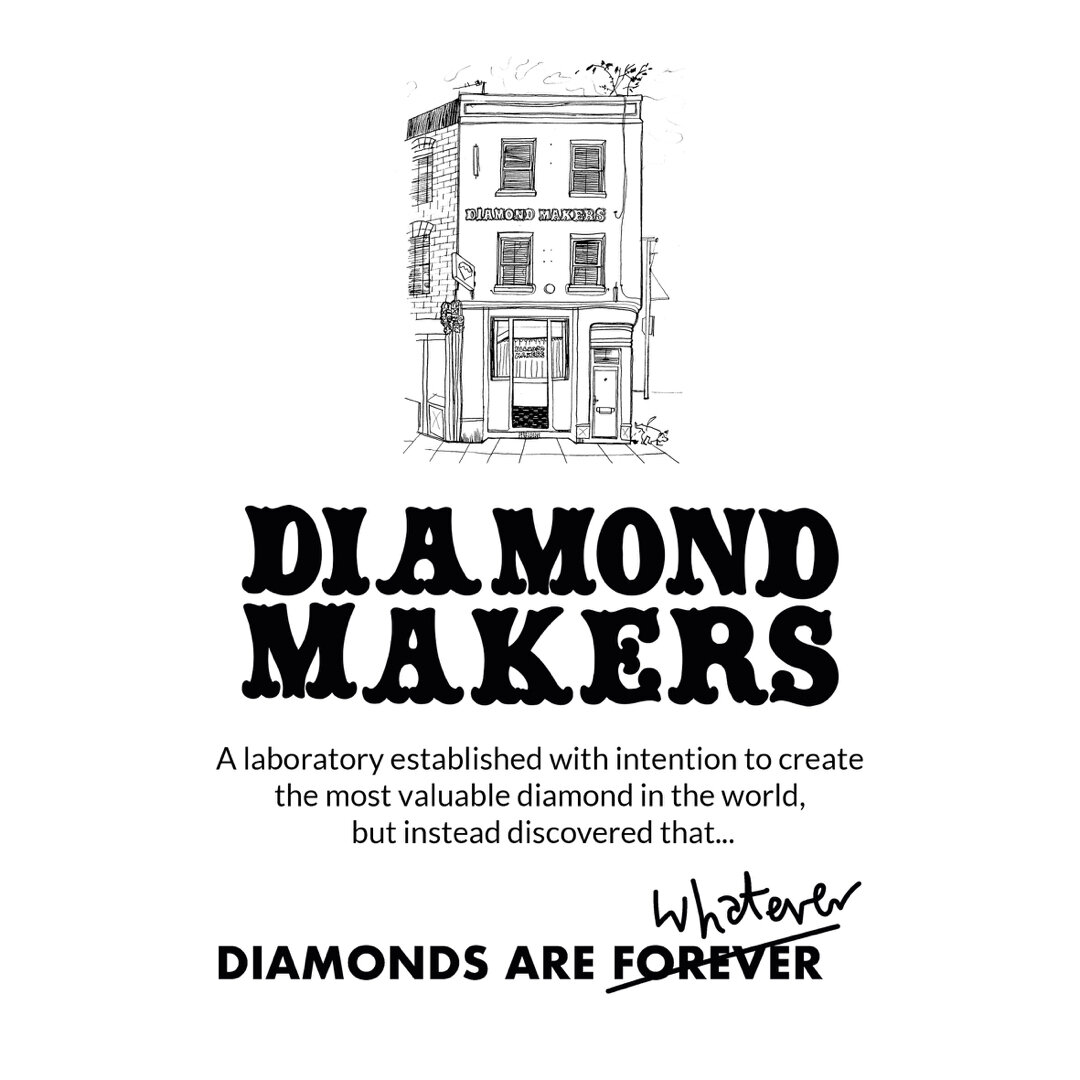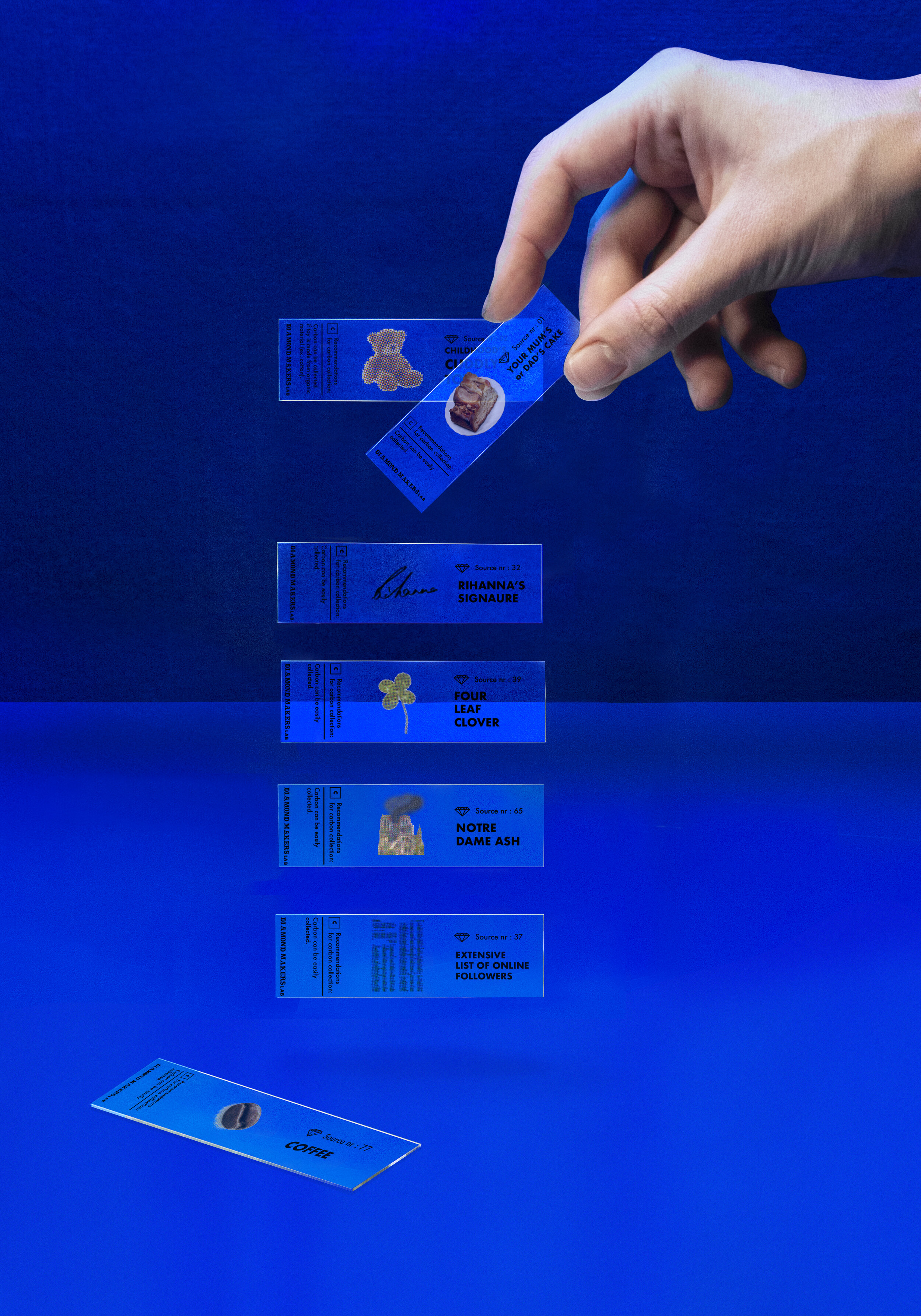Through craft, footwear and diamonds into the future
“I'M INTERESTED IN FASHION AS A LANGUAGE AND COMMUNICATION PRACTICE. I WISH TO USE FASHION DESIGN TO CREATE A CRITICAL COMMENTARY ON SOCIETY AND SUBJECTS THAT I ENGAGE WITH”
Aniela Fidler Wieruszewska
What really is luxury nowadays? How can we build long lasting relationships with products? Can traditional craft solve contemporary problems?
Determined to change fashion’s status quo, challenging questions are fundamental to Aniela’s practice. Her stance really writes into the 2020 zeitgeist, but she has been stressing about issues in fashion before it just became a “trendy” thing to do. Aniela grew up in Poland in a multidisciplinary creative environment with parents in graphic design, sister in fashion and grandfather working as a tailor. Open mind , skill and ambition have been running in her family since generations.
Powerful narrative and strong sociological research are at the forefront of her work. .“I'm interested in fashion as a language and communication practice, so I'm intuitively drawn to explore other areas of design that have a similar function. I'm long time obsessed with the Polish School of Posters (especially from the period 1950s. to 1980s.). She references the likes of Hilscher and Tomaszewski as inspiration for ways to communicate her ideas. She continues “They are bold, witty, humorous, curious and imaginative, but most importantly, they have incredible with power to make us think. The use of metaphor in those works is astonishing; I can't get over how suggestive they are and how clever are the allusions they make. I'm always impressed with how artists from that period were able to express their personality and emotional involvement without distracting from the depth of the meaning of the message. I want my work to have the power to do so, but in the space of so-called 'fashion'. I wish to use fashion design to create a critical commentary on society and subjects that I engage with.”
Having recently graduated from MA Fashion Futures programme at London College of Fashion she is currently working at the Centre for Sustainable Fashion in London, a research institution focusing on applying sustainable design as both artistic and business practice. Fashion in all its charm of beautiful, desirable collections, notoriously covers up its less attractive backstage of waste and underpaid labour. Aniela faces the problem in her everyday work and believes that production could be fair, beautiful and equally pride-worthy as final designs.
Catching up on Zoom in the midst of her busy schedule we are talking through her projects, inspirations and ambitions. Must admit, her passion for innovation is truly contagious. No wonder she is also involved in educational projects, discussion panels and workshops aimed at instilling sustainable practices. Following her success winning the Kering Sustanability Award, her MA project Diamond Makers Lab was part of Dutch Design Week 2020, her concepts were featured in recent trend forecasting report by Future Laboratory and lately her pitch got shortlisted to Lexus Design Award 2021.
Her portfolio features innovatory and thought provoking ideas. Due to marketing know-how gained at previous work experience, she presents them in a smart and immersive way. Visuals from her projects often incorporate humours element making the content more intriguing and taking weight off some difficult subjects she is dealing with.
Asked about her polish cultural influences, she mentions that sense of humour plays a big role.
“Especially Polish abstract sense of humour and tendency to laugh at the absurdity of human behaviour are present with me during my thinking process. I see laugh as a very powerful design toll, especially when it's used to comment on something uncomfortable otherwise. When I was growing up, I was fascinated with the communication practices during PRL. I love how Polish critical humour from that period exposed the absurdities of the reality and expressed attitudes that did not fit the official discourse. I believe that as a designer, I have a duty to trigger reflection and my Polish sense of humour is a great guide.”
Passionate about creative manufacturing, she believes that validating traditional techniques and craft is important to fix fashion problems. “My passion for the craft is very much connected to my search of alternative values in products, beyond economic. I'm interested in craft (in particular folk craft) because of the weight of the meaning and story that it can convey. I find traditional to be a great source of knowledge on how objects can communicate dependencies between individuals, communities and nature. Craft has proven to be an excellent method to celebrate them with skill and time invested in the make.
Aniela moved to London with ambition to study the craft of shoemaking. Though once admitted to a BA Cordwainers Footwear programme at the London College of Fashion she was not interested in designing newness just for the sake of newness. Determined to inspire a bit of change she founded a Community of Sustainable Practice within her campus.
While interning at Vivienne Westwood, she found browsing through the vast archive of the brand and studying inspiring clothing artifacts particularly inspiring experience which restored her belief that fashion really has the magic.
In her BA graduation project “Tondo” Aniela challenged the idea of waste, stressing that rubbish does not exist in objective reality. Footwear collection encompassed upcycled materials from domestic and industrial waste as well as special folded technique applied to minimise material waste during production.
(below) Tondo shoes by Aniela Filder / campaign images
Participating in The Kering Award for Sustainable Fashion competition she got to work on a brief for Alexander McQueen.
Brand’s trademark is to merge traditional with contemporary, while artisan embroidery details are inseparable element of its collections. With that in mind Aniela identified embroidery as her point of focus pointing out that it naturally embodies sustainable values due to its slow making process. Aniela highlighted that India, famous for its exquisite handcraft simultaneously struggles with a problem of growing electronic waste. Taking into consideration those two facts, her submission envisioned an exciting opportunity for McQueen to connect India’s e-waste miner with local artisans to develop their embroideries using electrical wiring. “I wanted to empower the Indian community to fight their electronic waste issue through heritage craft.” explains Aniela. In fruitful collaboration with Hand & Lock she created embroidery prototypes upcycling copper wiring while also incorporating a 2000 years old technique. Such innovative response utilising tradition to solve a contemporary issue gained her 1st prize. This experience heightened designer’s confidence in solving complex problems with the combination of creativity and analytics.
(below) recycled copper wiring embroidery prototypes for the Kering Sustainable Award
Studying on the MA Fashion Futures programme allowed her to streamline her practice into innovation. With her growing interest in emotional durability her graduation project was born to map values behind products. She approached it through analysing diamonds, which encompass so many symbolic associations.
Precious minerals are usually linked to love, purity, rarity. "Traditionally, the marketing tactic of diamonds associates love with a rare luxury. I found this story equally fascinating and disturbing," To align love and diamonds together, in spite of the fact of environmental and political controversies in regards to sourcing is quite inappropriate. Ethical man-made diamonds in turn are not considered a serious alternative with their worth being incomparably lower to real-deal minerals.
“I intended to deconstruct and learn why we value diamonds and give others an opportunity to reconsider what they value and why.” Ultimately, Aniela set herself a challenge to reposition the perception of diamonds through creating them out of objects considered precious to the specific owner. Conducted survey allowed her to identify over 100 personally valuable subjects which respondents would love to turn into a diamond. Quite a surprising collection appeared ranging from “Notre Dame ashes “ to the “dear dead hamster”. In this way, ironically to the popular “Diamonds are forever” her project statement became “Diamonds are whatever”. Through a collaboration with a diamond lab in Sankt Petersburg she developed a prototype mineral made with her private idea of luxury - her mother’s cake.
Such an exciting tailor made retail experience offers consumers a chance to reflect and acknowledge what truly is luxurious and rare to them. “Focus on origin allows the customer to choose the meaning and emotional significance that they want their diamond to have. Source is fully customisable and the selection process is designed to trigger personal reflection on values and following them desires.”- explains Aniela.
Diamond Maker’s Lab campaign by Aniela Fidler
diamond materials / Diamond Maker’s Lab campaign by Aniela Fidler
In the time of global changes, with daunting effects of the pandemic and uncertainties, creative input of future oriented designers like Aniela will be crucial to navigate the industry forward.
Asked about her personal experience of lockdown and her own reflections on this particular time Aniela admits : “Pandemic reinforced my belief that design has an important role to play in helping us relate to each other. It exposed emotional fabric of the world and our individual and collective vulnerabilities. I've been reminded that my feelings are as personal as universal and that there is a lot of unexplored value in compassion (co-feeling). It is excruciating but inspiring time for me and I'm sure I will utilise some of my observations in the future.”
Are you willing to learn more about Aniela’s Diamond Makers Lab or perhaps you’d like to turn your dearest “whatever” into a diamond?
Click here.
To catch up with Aniela's practice follow her inspiring Instagram.

